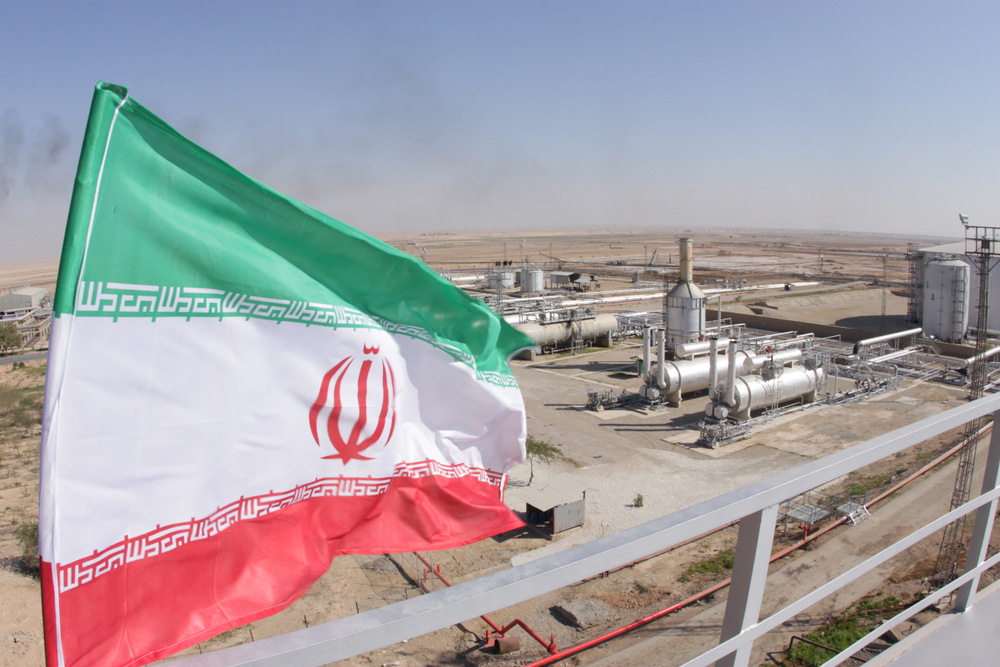Tehran recently signed an agreement with the Taliban to export oil to Afghanistan, through which it hopes to establish influence with the Taliban on one hand, and to increase its own oil exports and evade the economic sanctions on the other.
On July 23, Iranian media revealed that an Afghani delegation including representatives from the Oil and Gas Company, the Ministry of Foreign Affairs and Trade, the Central Bank, and the Afghan International Standards Service visited Tehran to sign a new deal to export 350,000 tons of oil to Afghanistan. The deal had grown in importance as fuel prices soared in Afghanistan as a result of the Russian war in Ukraine, reaching USD0.99 per liter of gasoline, and USD 1.32 per liter of diesel. It is important to note that Iran deliberately obscured the financial particulars of the agreement, stating only that the oil was to be exported “at an appropriate price”.
Concluding this oil deal serves both parties by satisfying their respective interests, these include:
Iranian leverage on the Taliban: The energy crisis in Afghanistan gives Iran leverage against its old-time adversary, the Taliban, as the two parties succeeded in opening secure channels of dialogue and cooperation even before the Taliban assumed power. However, this does not mean that there are no longer issues of contention, which may in fact resurface at any moment. Iran perceives this deal helps the Taliban contain the crisis of spiking fuel prices in Afghanistan but will leave them dependent on Iran’s support. Iran can therefore in the future leverage this dependency to further its interests in Afghanistan, which is the same policy it pursues in Iraq.
Pre-empting the engagement of other countries in the Afghan market: Iran understands that the Taliban has other options, such as Russia and Turkmenistan, who are already in talks with Afghanistan over energy issues. Russia especially is a strong contender, and it is actively seeking new markets for its oil exports to counter the impact of Western sanctions. It is therefore in Iran’s interest to move quickly and secure a deal before the chance is lost.
Energy at advantageous prices for Afghanistan: It is to be expected that the Taliban is seeking to take advantage of the current predicament of both Iran and Russia, to achieve financial gains. The Taliban have probably put a limit on the amount of oil they will import from Iran, to prevent it from gaining leverage, and to also take advantage of the competition with Russia to lower prices. In other words, they perceive the crisis in Ukraine, and sanctions on Iran and Russia as an opportunity to secure energy at advantageous prices.
Promoting Iran’s exports strategy: Iran is making vigorous efforts to promote its oil exports to foreign markets, particularly China, in clear defiance of US sanctions. According to numerous estimates, Iran’s oil exports reached 1 million barrels per day (bpd), equivalent to about 40% of oil exports before the reimposition of U.S. sanctions in August 2018, following the US withdrawal from the Vienna negotiations on May 8 of the same year. Here, Iran seeks to send a direct message to the US that whatever path the nuclear negotiations in Vienna and Doha take, Iran will find major buyers such as China and Afghanistan.
The US on its part currently has an interest in turning a blind eye to Iran’s success in circumventing US sanctions, and raising the level of oil exports both officially and through the use of unofficial trade routes such as smuggling, shutting down trackers on oil tankers, and using shell companies. This could be a strategy by the US administration to create a more conducive environment to conclude a nuclear deal without the conditions Iran has been pressing for: guarantees the US would not withdraw from the new agreement, and striking the Revolutionary Guard from the US list of foreign terrorist organizations.
Accordingly, should the nuclear negotiations fail, Iran will find it difficult to continue exporting oil at the same level, as the US is likely to revert to previous measures of tracking and confiscating oil tankers. Nor can Iran fully bet on China to make up for lost exports, as despite its differences with the US, it has previously responded to US pressure by reducing its oil imports from Iran.
In conclusion, it can be argued that the signing of the agreement to export Iranian oil to Afghanistan reflects a change in Iranian policy, that Iran is no longer relying exclusively on a security approach but has now added an economic dimension to its relations with the Taliban. Tehran hopes that developing economic ties could help contain disagreements with the Taliban, whereas relying solely on a security oriented approach led to tensions between the two during Taliban’s previous rule of Afghanistan in the 1990s. Thus far however, the Taliban has yet to show its commitment to regional agreements nor has it promised to keep contentious files at bay.Moreover, the Taliban continue to resist Tehran’s call for an inclusive government representing all Afghan ethnicities, including Iran’s allies. Disputes over water also remain a major issue of contention, as Iran presses to maintain its traditional share of the waters of the Helmand River, which originates in Afghanistan. Afghan authorities, on the other hand, argue that Iran is actually getting more than its fair share, and is exploiting Afghanistan’s instability to prevent the establishment of Afghan infrastructure for the optimal exploitation of water. This issue can be expected to escalate in the future in light of Iran’s current water scarcity crisis.


